Chief Executive Carrie Lam has said that the “One Country, Two Systems” principle could be extended if authorities believe it can be smoothly implemented past its 2047 expiry date.
Lam was answering a question from pro-Beijing lawmaker Ann Chiang during a regular Q&A at the Legislative Council on Thursday.
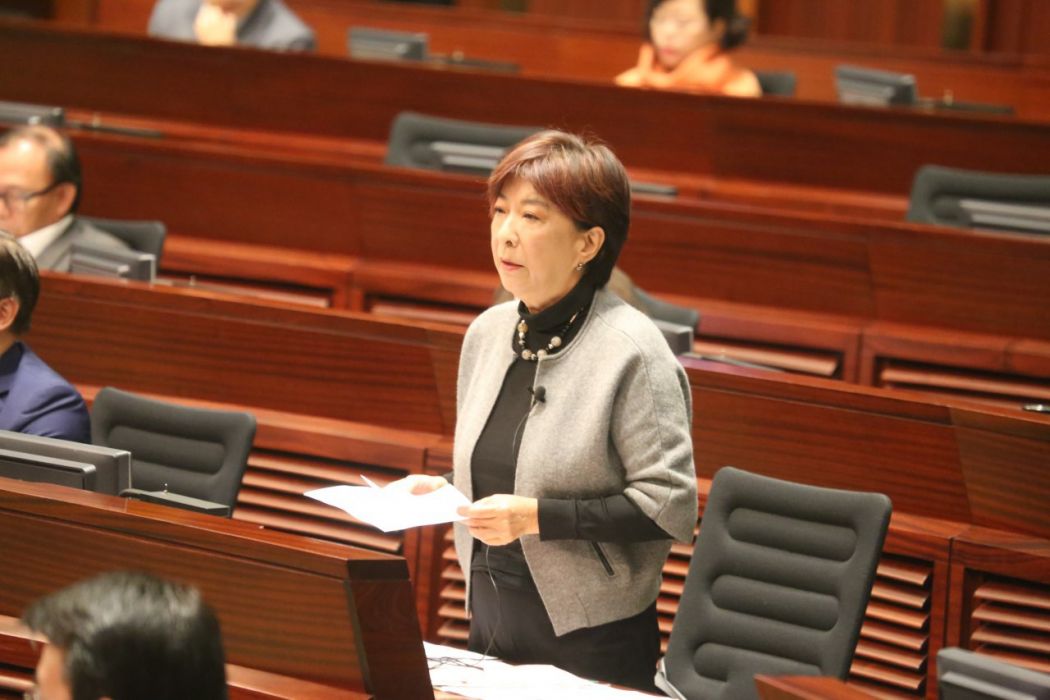
Chiang said that young people have been protesting over the last seven months because they were concerned the Basic Law would only protect Hong Kong’s systems and way of life until 2047.
“Will there be ‘One Country, Two Systems’ after 2047? Will it become ‘One Country, One System’ by then?” she asked.
Article 5 of the Basic Law states: “The socialist system and policies shall not be practised in the Hong Kong Special Administrative Region, and the previous capitalist system and way of life shall remain unchanged for 50 years.”
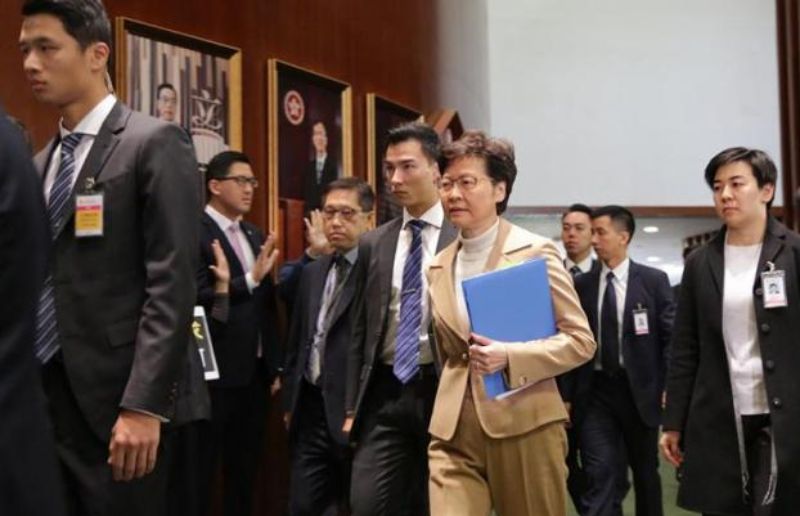
Lam, in response, said: “My view is this: as long as we persist with the ‘One Country, Two Systems’ principle, push forward the implementation of ‘One Country, Two Systems’ and have a full understanding and implementation of the principle… then we have adequate reason to believe that ‘One Country, Two Systems’ will be implemented smoothly and in the long term, and it will not change after 2047.”
She said many young people were born after the 1997 Handover and should treasure the “One Country, Two Systems” framework, which promises that Hong Kong’s economic, political, and administrative systems will remain unchanged for 50 years.
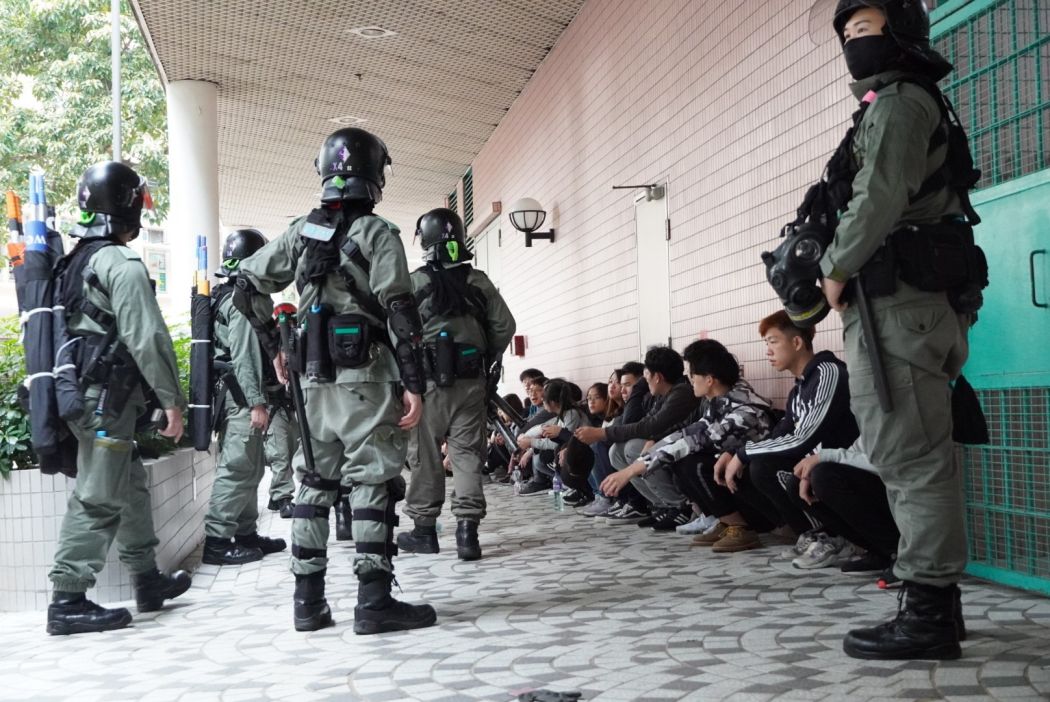
“Do not destroy this important principle because of misunderstanding, and a lack of understanding of ‘One Country, Two Systems’ and the Basic Law. Otherwise, they may cause the situation that they are worried about,” she said.
Democrats protest
During the session, 13 lawmakers were kicked out of the chamber, including one pro-Beijing legislator.
“I have already given a political response.” – Carrie Lam refuses to budge on the protest movement’s other demands, after criticism from democrat Roy Kwong. https://t.co/5uCQU7nDRv pic.twitter.com/ruY7TeN0Yp
— Hong Kong Free Press (@HongKongFP) January 16, 2020
Democratic Party lawmaker Roy Kwong asked Lam when will she set up an independent commission of inquiry to look into the ongoing unrest – a core demand of pro-democracy protesters.
Lam said she had no further comment on the matter. “Now we need to do practical things to boost the economy. We also need to treasure the rule of law,” she said.
#HongKong democrat Alvin Yeung said he wished to congratulate Chief Exec. Carrie Lam for helping #Taiwan‘s @iingwen in her election victory. “You are the laughing stock of the world… do you know what shame is?” https://t.co/5uCQU7nDRv Lam rejected the criticism. pic.twitter.com/QYXU8DkYQK
— Hong Kong Free Press (@HongKongFP) January 16, 2020
Kwong asked when she will resign, saying she was “shameless.” Lam said she had nothing else to say and would not respond to insults.
In her opening speech, Lam said that formation of an independent review committee – without investigative power – was almost completed and that she hoped details on it could be released next month.
Civic Party lawmaker Alvin Yeung said Lam had helped Taiwan’s Tsai Ing-wen win her presidential reelection with a record-high number of votes. He also said Lam had turned a blind eye to police brutality.
“Carrie Lam, do you know how to write the word ‘shame’?” he asked, holding up a sign with the term on it.
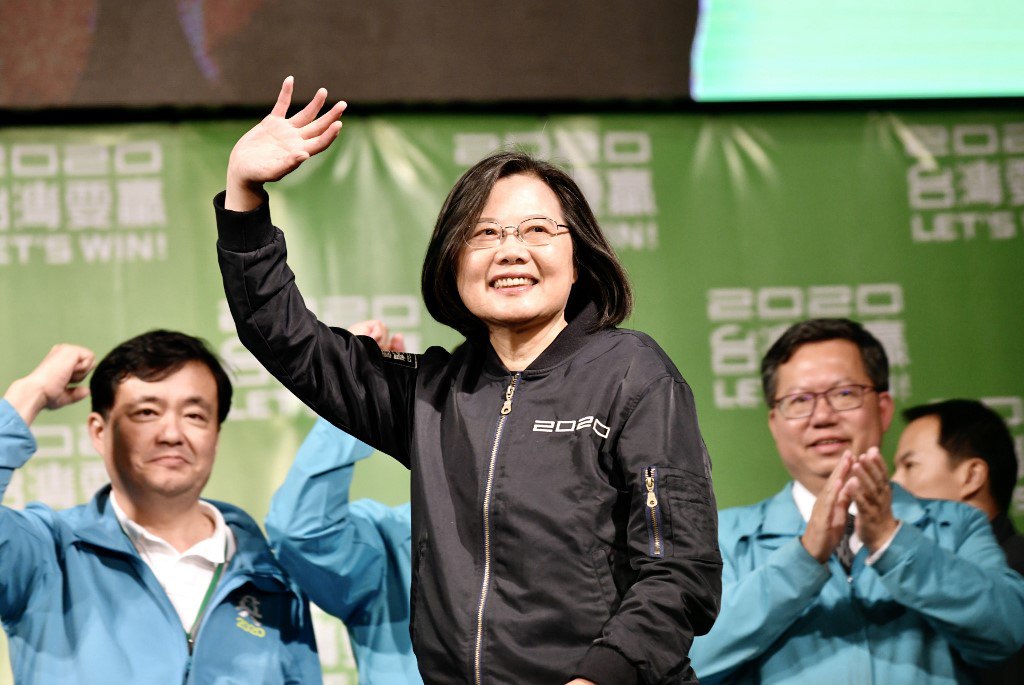
Lam said she did not accept allegations of police brutality. “If no-one is breaking the law, police would not have to carry out law enforcement,” she said.
She said police have been using the minimum amount of force necessary. “But unfortunately, what we saw was a smearing of the police force, which I believe the goal was to weaken the force’s ability to enforce the law,” she said.
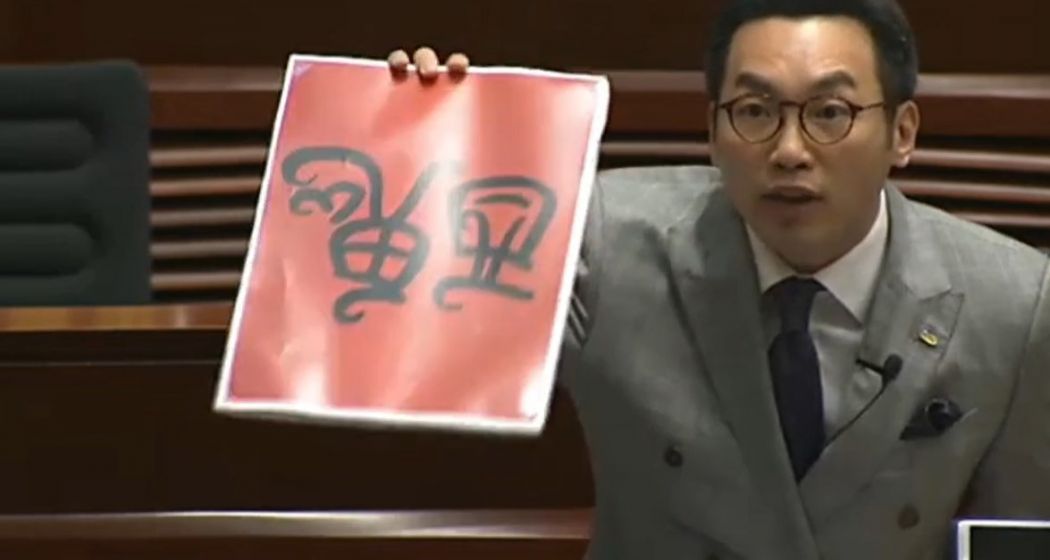
New People’s Party lawmaker Eunice Yung asked Lam if she and her team would be willing to take a salary reduction of ten per cent in response to public anger.
Lam said she and her team would need time to consider whether such measures would be effective in mending divisions in Hong Kong society.
Before the Chief Executive entered the chamber, democrats chanted slogans including “Five demands, not one less” and “Carrie Lam step down.”
#HongKong pro-democracy lawmakers Kwok Ka-ki, Eddie Chu & Ray Chan have been removed from the chamber for protesting. https://t.co/zU2n4nlpqH Pro-Beijing lawmaker Michael Luk was also removed for shouting. pic.twitter.com/l6Ij6mrpvd
— Hong Kong Free Press (@HongKongFP) January 16, 2020
During the Q&A, democrats Kwok Ka-ki, Eddie Chu, Ray Chan, James To, Helena Wong, Charles Mok, Lam Cheuk-ting, Shiu Ka-chun, Claudia Mo, Alvin Yeung, Ted Hui and Andrew Wan were ejected from the chamber for protesting. As Yeung left on his accord, he dropped a placard with the word “shame,” prompting Legislative Council President Andrew Leung to formally kick him out.
Pro-Beijing lawmaker Michael Luk was also asked to leave for shouting at democrats. “The opposition camp is sending young people to their deaths!” he said, referring to young people who have played a significant role in ongoing protests.
More protests from ejected lawmakers as Chief Exec. Carrie Lam leaves the legislative chamber. https://t.co/5uCQU7nDRv Full update shortly on HKFP: https://t.co/xTFFQ9TiE5 pic.twitter.com/Z8queZTY1Z
— Hong Kong Free Press (@HongKongFP) January 16, 2020
As Lam left the chamber, democrats chanted protest slogans and held up their hands to signify the five core demands.
